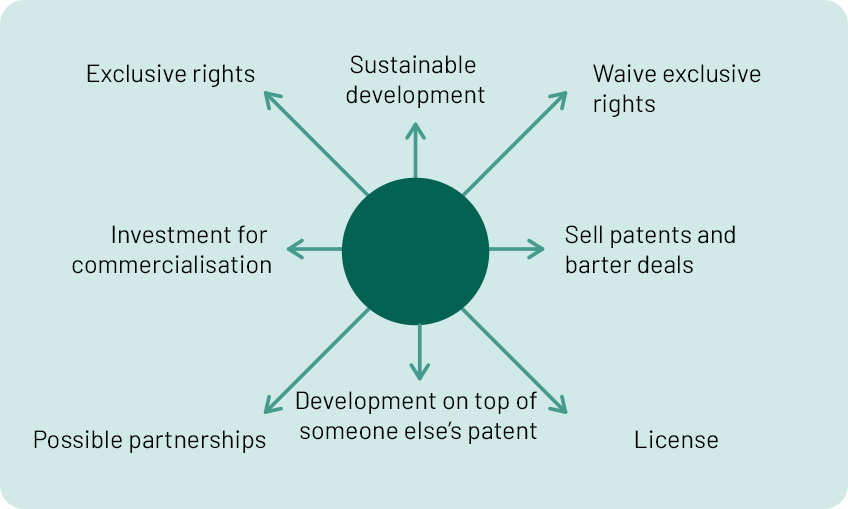Earn money from a patent
Patents are a commercial tool that can facilitate profitable business. It is up to you to decide what you do with your patent.
Patents create business opportunities
Patents are not just a form of protection for your invention, they are also a commercial tool. Below, we have put together a number of examples in order to explain how you can make best use of your patents given your own situation, product and market.

Exclusive rights
If you own a patent, it is only you that has the right to make use of the invention. No one else is allowed to manufacture, sell or import it without you, the owner of the patent, having granted permission.
Investment for commercialisation
With a patented invention, it is likely that you will become more attractive to investors. You can demonstrate that you have exclusive rights to a section of the market. Using investors can help you in the process of commercialising your invention.
Possible partnerships
With a patented invention, you may be perceived as a more attractive partner and become more visible to others. Partnering with others can help you to build on your invention and get it to market.
Licences
You can allow others to use your invention through licensing and get paid for this. This might be an option if it is not possible for you to produce your invention yourself. It is possible for you to use other people’s inventions in the same way (more about this can be found under the heading ‘Further development of someone else’s patent’).
You can also exchange patent rights with others, which is known as cross-licensing, by negotiating about the use of one another’s inventions. The value of your patents affects your position in these negotiations.
Sell patents
If you do not want or are unable to use your invention yourself, you can sell the patent or your patent application to someone else and earn money that way. Bear in mind that a granted patent is worth more than a pending patent application.
Waive exclusive rights
It is possible to have a patent and to waive exclusive rights. This gives the entire world access to your invention but no one else is able to claim exclusive rights to it.
Sustainable development
It is you, the patent holder, who decides how and by whom your invention may be used. For example, you can choose to only license your patent to those who work with product development in a sustainable and responsible way.
Further development of someone else’s patent
It is possible to make further developments to other people’s patented inventions and thus contribute to additional development and create new business opportunities. However, remember that you need permission or a licence from other patent holders if their invention is being use in your invention.


